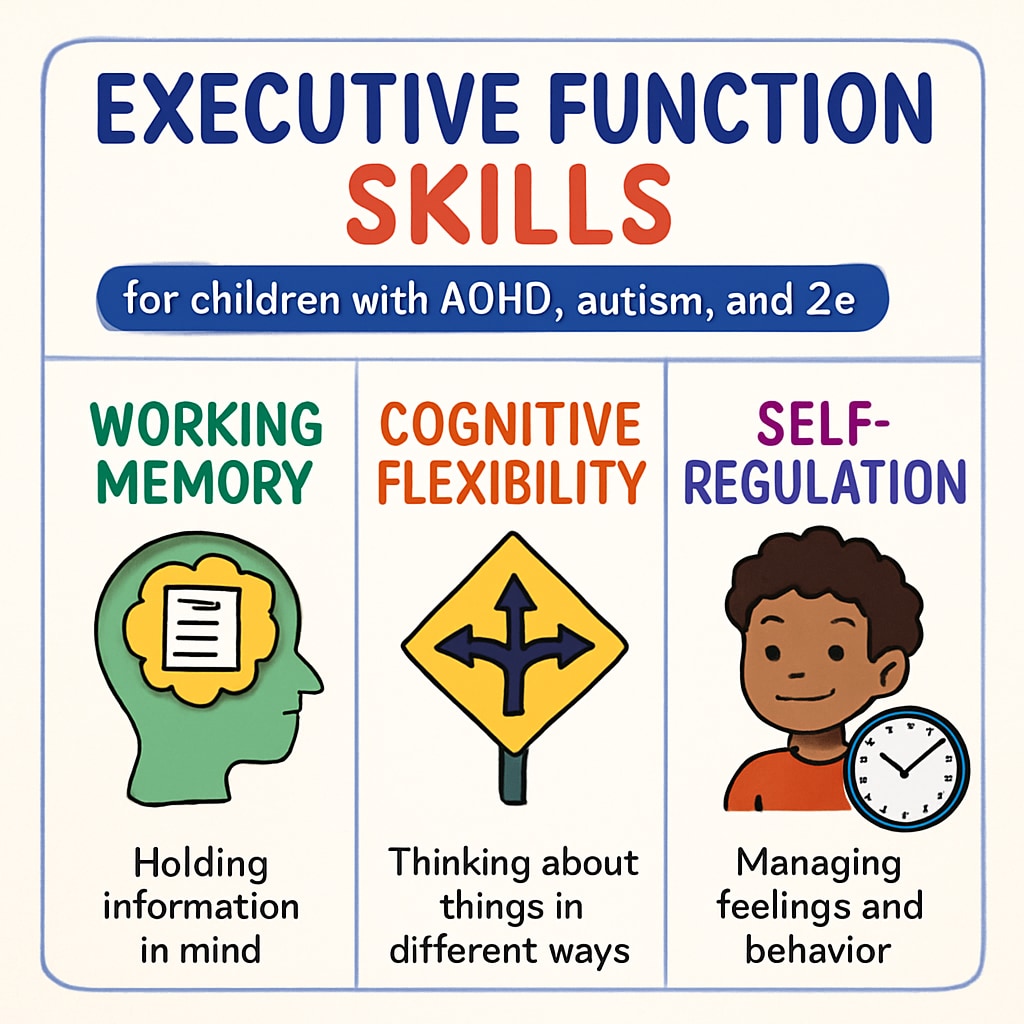Helping children with ADHD, autism, and twice-exceptional (2e) traits navigate school and life requires careful attention to executive function skills. These skills, which include planning, organization, time management, and emotional regulation, are crucial for achieving success and independence. The 7th Back-to-School Online Summit aims to empower parents by offering actionable strategies and resources tailored to the unique challenges faced by special needs children. This summit not only focuses on enhancing children’s development but also prioritizes mental health and emotional resilience for parents.
Understanding Executive Function Challenges in ADHD, Autism, and 2e Children
Executive function deficits can significantly impact a child’s ability to thrive academically and socially. For children with ADHD, these challenges often manifest as difficulty focusing, managing time, or regulating emotions. Autism spectrum disorder adds layers of complexity with sensory sensitivities and social communication barriers, while twice-exceptional children may struggle with balancing their exceptional talents and their areas of difficulty.
It’s essential for parents to understand how executive function challenges vary across these conditions. By gaining insights into their child’s unique needs, they can tailor support strategies effectively. For example, creating visual schedules for children with autism or using timers and reward systems for ADHD can make a big difference.

Practical Strategies for Supporting Executive Function Development
Developing effective strategies to support executive function can transform daily routines and long-term outcomes for special needs children. Here are some proven approaches:
- Structured routines: Predictable routines reduce anxiety and help children stay organized. Break tasks into smaller steps and use checklists or visual aids.
- Goal setting: Encourage children to set achievable goals and celebrate their progress. This builds confidence and motivation.
- Mindfulness techniques: Practices such as deep breathing and guided meditation can improve focus and emotional regulation.
- Collaborative problem-solving: Engage children in discussions about challenges and brainstorm solutions together to foster independence.

Empowering Parents and Building Resilience
While the summit provides tools for supporting children, it also addresses the emotional well-being of parents. Caring for a child with special needs can sometimes feel overwhelming, but building resilience is key to sustainable caregiving. Topics covered at the summit include stress management techniques, communication strategies for family harmony, and resources for seeking professional support.
Parents will also have the chance to connect with experts and other families facing similar challenges. Such connections foster a sense of community and shared understanding, which can be invaluable during difficult times.
By attending the 7th Back-to-School Online Summit, parents will walk away equipped with practical knowledge to support their child’s executive function development, as well as strategies to nurture their own mental health. Together, these tools create a holistic support system that sets both children and parents on a path to success.
Readability guidance: Use concise paragraphs and bullet points for clear communication. Include transition words to maintain flow and ensure engaging readability. Focus on actionable advice and emotional connection.


